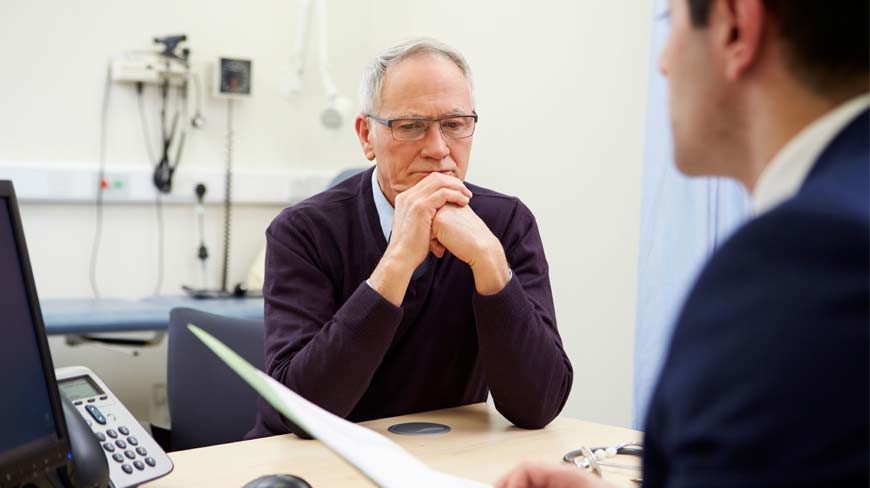7 Best Ways to Avoid Colon Cancer
Colon cancer remains a leading cause of cancer deaths in both men and women. Yet, research shows that about half of all cancer deaths could be prevented by making healthy lifestyle choices.
Colon cancer is treatable and often curable – especially when it’s caught early. But the only way to catch it early is to have a colonoscopy. In fact, finding and removing polyps can stop cancer before it starts.
Here are 7 ways to avoid colon cancer:
1. Get a colonoscopy when you turn 45
A colonoscopy is the best way to avoid colon cancer. The American Cancer Society now recommends having your first screening colonoscopy at age 45. That’s younger than it used to be because more patients are developing colon cancer at younger ages than previous generations.
A screening colonoscopy lets your gastroenterologist check your colon for polyps. Those are lumps of tissue that can grow on the lining of your colon. Polyps are usually non-cancerous but can grow cancerous over time. It generally takes polyps 10-15 years to develop into cancer.
If polyps are found during your colonoscopy, they’ll be removed. Polyps that are found and removed early don’t get a chance to become cancerous.
2. Get moving!
Exercise is good for your entire body. It can lower your risk of cancer and other diseases like diabetes and heart disease. The CDC recommends 150 minutes or more of moderate-intensity exercise per week. If you don’t currently exercise, a great way to start is to reduce the time you sit or lay down every day. Move more throughout the day. Every bit helps.
3. Eat healthy
A healthy diet helps lower your risk of many health problems, including cancer. Fruits, vegetables, beans, low-fat dairy, healthy proteins, and whole grains are all part of a healthy diet. It also means reducing the amount of red meat, processed meats, sugar, and fried foods. Some studies have found that red meats and processed meats increase your risk of colon cancer.
The USDA’s MyPlate website is a good source of information about healthy diet choices.
4. Maintain a healthy weight
In general, a healthy weight is determined by Body Mass Index (BMI), a calculation based on height and weight. A healthy BMI is considered one that falls into the 18.5-25 range. Obesity increases your risk of developing colon cancer and other cancers as well. Staying active and eating a healthy diet can help you maintain a healthy weight.
If you’re overweight or obese, losing even 10% of your weight lowers your risk.
5. Quit smoking
Quitting smoking is hard but could be the best decision you ever make. Smoking can damage almost every organ in your body, increasing your risk of developing many chronic health problems including colon cancer.
If you want to quit but don’t know where to start, Smokefree.gov has information and resources to help you quit.
6. Limit alcohol
Studies show that alcohol increases your risk of developing polyps. The healthiest option is not to drink at all. But if you do drink, limiting alcohol to two drinks per day (men) or one drink per day (women) is best.
7. Know your risk
Do you know if you’re at risk for developing colon cancer?
Some people have an increased risk because of factors they can’t change, like a family history of colon cancer. Risk factors you can’t change include:
- Age – colon cancer is more common over 45
- Racial and ethnic background – African Americans and Ashkenazi Jews have the highest risk
- Type 2 diabetes
- Personal history of adenomatous polyps (adenomas) – this type of polyp is considered pre-cancerous
- Personal history of colorectal cancer – even if it was removed, you have a higher risk of developing colon cancer again if you’ve already had it
- Inflammatory bowel disease (IBD) – including ulcerative colitis or Crohn’s disease
- Family history of adenomatous polyps or colorectal cancer
- Certain inherited syndromes – Lynch syndrome, familial adenomatous polyposis (FAP), and others
If you have any of those risk factors, talk to your doctor about when you should have a colonoscopy.
Take Care of Yourself to Prevent Cancer
We can’t guarantee that doing all the right things will prevent cancer. But we do know your best chance of avoiding colon cancer is to get screened and make healthy choices.
If you’re due for a colonoscopy, don’t delay and schedule an appointment now!
Request Appointment
Related:


